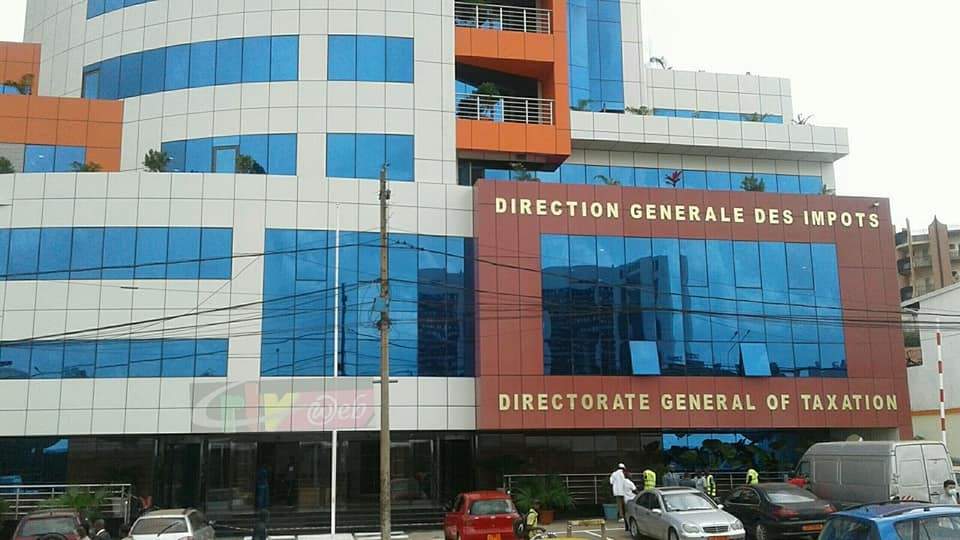
Innovations in the 2024 Finance Law of Cameroon
The recently enacted Law N° 2023/019, dated December 19, 2023, marks a significant turning point in the financial landscape of […]
Our expert legal team boasts exceptional knowledge of diverse laws and policy orientation in the countries where we provide top-notch client support.
Expert insight & up-to-date legal knowledge is key to our success as Africa’s top client-focused Law Firm.
At our firm, sharing knowledge and lessons learned is a key part of our culture.
Our team of dedicated and innovative attorneys in Cameroon is known for their agility, creativity, and forward-thinking approach. We provide seamless legal services and tailored solutions for even the most complex legal issues.

The recently published report on payment services by the Central Bank of CEMAC Member States demonstrates the awareness of the Central Bank of the growing appeal of cryptocurrencies among the population. However, it is impossible at the moment to reliably quantify this phenomenon.
The report clearly states that Crypto-assets are freely sold or exchanged among citizens of CEMAC, facilitated by the promotion efforts of cryptocurrency trading platforms through advertising posters and sponsorship of major events. To acquire crypto-assets, users were using their credit/debit cards.
This tracker is a high-level summary of the evolution of cryptocurrency regulation within the CEMAC region. We have made every reasonable effort to ensure the accuracy and completeness of this summary at the date of publication. However, this content does not constitute legal advice.
DATE OF THE ACT
NATURE OF THE ACT
KEY THINGS TO NOTE
31 October 2023
Press Release on COSUMAF Instruction nº xx/xx 2023 on approval as market intermediaries.
The Financial Market Supervisory Commission of CEMAC Member States (Cameroon, Chad, Equatorial Guinea, Gabon, the Central African Republic, and the Republic of the Congo), COSUMAF, has issued a public call for opinions on an instruction regarding approval as Market Intermediaries (including Virtual Asset Service Providers).
The following points should be noted from the proposed Instruction:
🔸Any applicant seeking approval as a market intermediary (including Virtual Asset Service Providers) must submit their application to COSUMAF.
🔸The application should include the following information:
a. Person responsible for preparing the application
b. Nature of the request
c. Type of intermediary
d. Type of activity
e. General information on the company (applicant)
f. Information on the share capital g. Information on the management body and any person managing the activities
h. Financial information i. Information on the organization of the Virtual Asset Service Providers;
🔸 Within four (4) business days of receiving the application, COSUMAF will send an acknowledgment of receipt to the applicant. This acknowledgment will include the contact details of the designated point of contact for processing the provided information.
🔸 COSUMAF has a period of sixty (60) days to communicate its decision of approval or refusal in both paper and electronic formats.
13 September 2023
Governor’s decision nº 144/GR/2023 Establishing a working group responsible for monitoring the implementation of the BEAC’s digital currency project.
The Central Bank of CEMAC Member States (Cameroon, Chad, Equatorial Guinea, Gabon, the Central African Republic, and the Republic of the Congo), BEAC, sets up a working group to study the possibility of a Central Bank Digital Currency (CBDC).
23 May 2023
General Regulation of the Financial Market Supervisory Commission of CEMAC
This regulation specifies the conditions and terms for the provision of services or operations related to virtual assets. The following should be noted from the regulation:
🔸A token is defined as any intangible asset representing, in digital form, one or more rights that can be issued, recorded, stored, or transferred through a shared electronic recording system that allows for the direct or indirect identification of the owner of said asset.
🔸A Shared Electronic Recording System or SERS is defined as a system designed and implemented to ensure the recording and integrity of entries and to identify the owners of securities, the nature, and the quantity of securities held.
🔸 A Virtual Asset Service Provider or VASP is therein defined as a professional whose activity consists of providing services for the buying and selling of virtual assets, the safekeeping of virtual assets, operating a virtual asset trading platform, and other services on virtual assets such as order reception and transmission, portfolio management, advice, and placement.
🔸 Contains provisions specific to the placement of digital tokens.
🔸Provides the conditions and procedure for approval of Virtual Asset Service Providers.
29 August 2022
Decision nº 008 CC/22 29th August 2022
The Constitutional Council of the Central African Republic, in a landmark decision dated 29th August 2022, declared the Sango project unconstitutional and null for violating the provisions of laws on nationality, naturalization, residency, the sale of natural resources, and the publication of official documents. The following key points should be noted from the decision:
🔸Nationality and Naturalization: Nationality and naturalization in the Central African Republic have no market value and therefore cannot be sold, contrary to what is published in the official document “SANGO GENESIS PAPER” on the website “SANGO.ORG”.
🔸Residency: Residency as a precondition for naturalization has no market value and therefore cannot be sold, contrary to what is published in the official document “SANGO GENESIS PAPER”. Additionally, the concept of “E-Residence” does not exist in any law applicable in the Central African Republic.
🔸Sale of Natural Resources: The sale of natural resources must respect due process, which requires obtaining prior authorization from the National Assembly before executing any contract for the sale of natural resources. Such contracts must be published eight (08) days after signature.
🔸Publication of Official Documents: The publication of official documents must be in the official languages of the Central African Republic, which are “French” and “Sango” languages. This is contrary to the “SANGO GENESIS PAPER,” which was only published in the English language.
21 July 2022
Regulation nº 01/22/CEMAC/UMAC/COSUMAF on the organization and functioning of the Financial Market in Central Africa
The updated Financial Market Regulation of CEMAC Member States (Cameroon, Chad, Equatorial Guinea, Gabon, the Central African Republic, and the Republic of the Congo) contains provisions on Blockchain, Initial Coin Offerings (ICO), Virtual Assets, and Virtual Assets Service Providers (VASPs). The following key points should be noted from the regulation:
🔸Blockchain and Shared Electronic Recording Systems: Financial instruments can be recorded in a shared electronic registration system (SER) or any equivalent system, such as Blockchain, that allows for the direct or indirect identification of the instrument’s owner. Registration in an SER serves as registration in an account.
🔸Digital Token Placement: The regulation provides specific provisions governing the placement of digital tokens.
🔸Token Definition: A token is defined as any intangible asset representing, in digital form, one or more rights that can be issued, recorded, stored, or transferred through an SER that allows for the direct or indirect identification of the asset's owner.
🔸Virtual Asset Service Providers (VASPs): VASPs are considered market intermediaries offering Virtual Asset Services.
🔸Provision of Virtual Asset Services: Providing Virtual Asset Services (VAS) encompasses offering one or more of the following services or operations:
➡️ Safekeeping of Digital Assets on Behalf of Third Parties: This involves safeguarding digital assets for third-party clients.
➡️ Buying and Selling Digital Assets against a Legal Tender or Other Virtual Assets: This entails facilitating the exchange of digital assets for legal tender or other virtual assets.
➡️ Operation of a Virtual Asset Trading Platform: This involves managing a platform that enables the trading of digital assets.
➡️ Other Services on Virtual Assets: This includes providing a range of services related to virtual assets, such as order reception and transmission on behalf of third parties, portfolio management for third parties, investment advice, and token placement.
27 June 2022
Press Release
On July 3, 2022, the President of the Central African Republic officially launched “Sango” (https://sango.org/) a transformative initiative designed to tokenize the country's abundant natural resources.
06 May 2022
COBAC Decision D-2022/071 on Holding, Use, Exchange, and Conversion of Cryptocurrencies or Crypto-Assets by entities subject to COBAC
The Financial Market Regulator of CEMAC Member States (Cameroon, Chad, Central African Republic, Equatorial Guinea, Guinea, Gabon, and Congo Brazzaville) has prohibited Banks, Microfinance Institutions, and Payment Service Providers from facilitating transactions in cryptocurrency. The following key points should be noted from the decision:
🔸Prohibition on Holding and Subscribing to Cryptocurrencies: Reporting institutions (banks, microfinance institutions, and payment service providers) and their technical partners are not authorized to subscribe to or hold cryptocurrencies or virtual currencies of any kind for themselves or on behalf of third parties.
🔸Prohibition on Cryptocurrency-Related Transactions: Reporting institutions and their technical partners are prohibited from exchanging, converting, settling, or hedging in foreign currency or CFA francs transactions related to cryptocurrencies or having a link with them.
🔸Cryptocurrencies as a Means of Valuation: The treatment of cryptocurrency or cryptoassets as a means of valuation of assets, liabilities, or off-balance sheet items of reporting institutions is prohibited.
🔸Acceptable Currency for Accounts: Pursuant to the provisions on the Chart of Accounts for credit and microfinance institutions, the CFA franc shall be the only acceptable currency for accounts kept by reporting institutions. Other foreign currency accounts are kept exclusively in the conventional currencies issued by central banks.
🔸Identification and Reporting of Cryptocurrency Transactions: Reporting institutions are required to identify transactions carried out or rejected in connection with cryptocurrencies, including the ordering client, beneficiaries, amounts, the currency of the transaction, the consideration in cryptocurrency, and the purpose of the transaction. A detailed monthly report of these transactions must be communicated to the Secretariat General of COBAC and the Central Bank.
🔸Implementation of Measures to Identify Cryptocurrency Transactions: Reporting institutions are required to take all appropriate measures and implement procedures, as well as internal control measures, for their information systems to be able to identify at any time transactions related to cryptocurrencies so as to implement the measures taken by the regulatory and supervisory authorities and the Central Bank.
22 April 2022
Law nº 22.004 on Cryptocurrency in the Central African Republic
The Central African Republic adopted a law regulating cryptocurrency transactions and became the first country and Central African country to promulgate a law on Cryptocurrency. The following key points should be noted from the law:
🔸Cryptocurrency as an Alternative to Fiat Currency: Cryptocurrency becomes an alternative to fiat currency, with Bitcoin being the base reference. This means that cryptocurrency can be used for the same purposes as fiat currency, such as making payments and storing value.
🔸Unlimited Issue of Cryptocurrency: An unlimited amount of cryptocurrency can be issued. This differs from fiat currency, which is typically issued by a central bank and has a limited supply.
🔸Scope of the Law: The law targets a wide range of cryptocurrency- related businesses, including cryptocurrency platform owners, platform owners offering goods and services using smart contracts on the blockchain, off-ramp and on-ramp cryptocurrency service providers, crypto wallet service providers, and cryptocurrency operations related to purchase, sale, and cash-out.
🔸Free Determination of Exchange Rates: The exchange rate between cryptocurrency and fiat currency shall be freely determined by market forces. This means that the government will not intervene to set or peg the exchange rate.
🔸Acceptance of Cryptocurrency for Payments: Electronic transactions can be performed using cryptocurrency, and economic operators are required to accept cryptocurrency for the purchase and sale of goods and services. This means that businesses must accept cryptocurrency as payment, just as they would accept fiat currency.
🔸Taxation of Cryptocurrency Transactions: Cryptocurrency-related transactions are tax-free. However, profits generated by traders are subject to the General Tax Code. This means that cryptocurrency traders will not be taxed on the sale or exchange of cryptocurrency, but they will be taxed on any profits they make.
🔸Establishment of a Cryptocurrency Regulatory Agency: An agency to regulate cryptocurrency has been created. This agency will be responsible for overseeing the cryptocurrency industry and ensuring that businesses comply with the law.
27 May 2021
Warning
The Financial Market Supervisory Commission of CEMAC Member States (Cameroon, Chad, Central Africa Republic, Equatorial Guinea, Guinea, Gabon, and Congo Brazzaville), COSUMAF, issues another warning against companies offering cryptoassets within the CEMAC Region.
COSUMAF particularly cautions against the following companies that irregularly collect funds from the public in the form of equity contributions, placements, and for different goods: Global Investment Trading (Liyeplimal); Highlife International Cameroon; Cameroon Invest; Timex Trading Cameroon; TJTM Cameroun and Tagus Investing.
29 October 2020
Press Release
Considered an illegal public offering by unauthorized persons, the Cameroon Minister of Finance called on all identified cryptoasset companies to:
🔸Immediately discontinue their illegal fundraising operations through public offerings with the use of advertisements and other publications through various communication channels.
🔸Refund without delay funds collected through these illicit operations from national and foreign economic operators and report to the Minister of Finance on the progress of these reimbursements.
🔸Discontinue any form of publication, communication, or advertising in connection with such investments in cryptoassets.
23 October 2020
Warning on communications regarding offers of crypto assets
The Financial Market Supervisory Commission of CEMAC Member States (Cameroon, Chad, Central African Republic, Equatorial Guinea, Gabon, and Congo Brazzaville), COSUMAF, has issued a public warning regarding cryptoasset offerings within the CEMAC region. The following key points should be noted from the warning:
🔸Unregulated Cryptoasset Offerings: Cryptoasset offerings are not currently regulated within the CEMAC region. This means that there is no legal framework in place to protect investors and ensure that cryptoasset offerings are conducted in a fair and transparent manner.
🔸Prohibition on Public Cryptoasset Offerings: Digital asset providers are prohibited from offering cryptoassets to the public within the CEMAC region. This includes advertising, marketing, or otherwise promoting cryptoasset offerings to the public.
🔸Legal Consequences for Public Cryptoasset Offerings: Entities or individuals that canvas the public for unregulated cryptoasset investments may be subject to prosecution under the applicable laws and regulations.
19 October 2020
Warning
The Financial Market Supervisory Commission of CEMAC Member States (Cameroon, Chad, Central African Republic, Equatorial Guinea, Guinea, Gabon, and Congo Brazzaville), COSUMAF, warns Cameroonians against the activities of unauthorized cryptoasset platforms offering investments and placements in financial products.
COSUMAF has identified several cryptoasset platforms that are operating illegally in Cameroon. These platforms are offering investments and placements in financial products without the necessary authorizations from COSUMAF.
The following cryptoasset platforms have been identified: AIP Invest; Liyeplimal Global Crypto Currencies Trading; Fortune Investment Network; Crifat CM; Highlife Cameroon; CHY Mall; Mougano Investment; GTX Invest; SOCGAA Sarl; Petronpay Cameroon; Mekit Invest; Unique Finance; Regel Cameroon; Cameroon Invest.

Attorney-at-law | Corporate-Commercial | Technology (FinTech+Blockchain+Cryptocurrency) | Securities | Tax| Managing Partner at 4M Legal and Tax ( Law Firm in Cameroon)

The recently enacted Law N° 2023/019, dated December 19, 2023, marks a significant turning point in the financial landscape of […]

In an ongoing commitment to safeguard consumers of payment services, foster trust in the use of payment accounts, and facilitate […]

In a decisive stride towards enhancing transparency and accountability, the 2023 Finance Law of Cameroon introduced a comprehensive framework imposing […]
©2023 4M Legal & Tax. All Rights Reserved.
